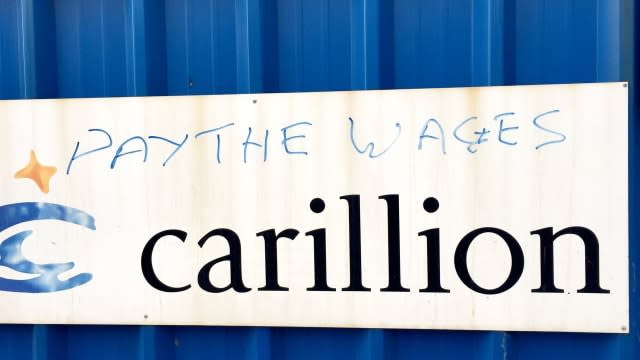Blackrock points finger at Carillion chiefs' greed as company went up in flames

Executives at collapsed construction giant Carillion were more concerned with awarding themselves bumper payouts as the company headed for disaster, according to the world's biggest investor, Blackrock.
The accusation came during a Parliamentary committee hearing which saw former Carillion shareholders quizzed by MPs from the Business and Pensions Committees on Wednesday.
Blackrock managing director Amra Balic told them that members of the Carillion board paid greater attention to their wallets than to the deterioration of the business.
"The most recent conversations (Blackrock had with the board) were around executive pay.
"It seems that the board was focusing more, thinking again how to remunerate executives rather than actually what was going on at the business.
"Definitely too much focus at the board level around remuneration."
The comments, which reference Blackrock's engagement with Carillion in 2017, come after anger over pay packets for a string of top bosses at the collapsed construction giant.
Richard Howson, who headed the company from 2012 until July 2017, pocketed £1.5 million in 2016, which included a £122,612 cash bonus and £231,000 in pension contributions.
As part of his departure deal, Carillion had agreed to continue paying him a £660,000 salary and £28,000 in benefits until October 2018.
Similar deals were struck for former finance chief Zafar Khan and interim chief executive Keith Cochrane.
During the hearing, Kiltearn Partners chairman Murdo Murchison raised concerns about shortcomings by both Carillion's auditors and the company's non-executive directors.
"Those closest (to the situation) don't seem to have any liability ... one of the things I would look at much more closely is the tenure of auditors," he said, noting that KPMG had been auditors for Carillion since 1999.
He was then asked by MPs whether he thought the Big Four accounting firms - KPMG, EY, Deloitte and PwC - hold too much power.
"There appears to be a lack of competition in a key part of the financial system, that periodically causes a lot of participants in that system a lot of trouble. Therefore, I would like to see a lot more competition."
Carillion's liquidation left in its wake a £900 million debt pile, a £590 million pension deficit and hundreds of millions of pounds in unfinished public contracts.


